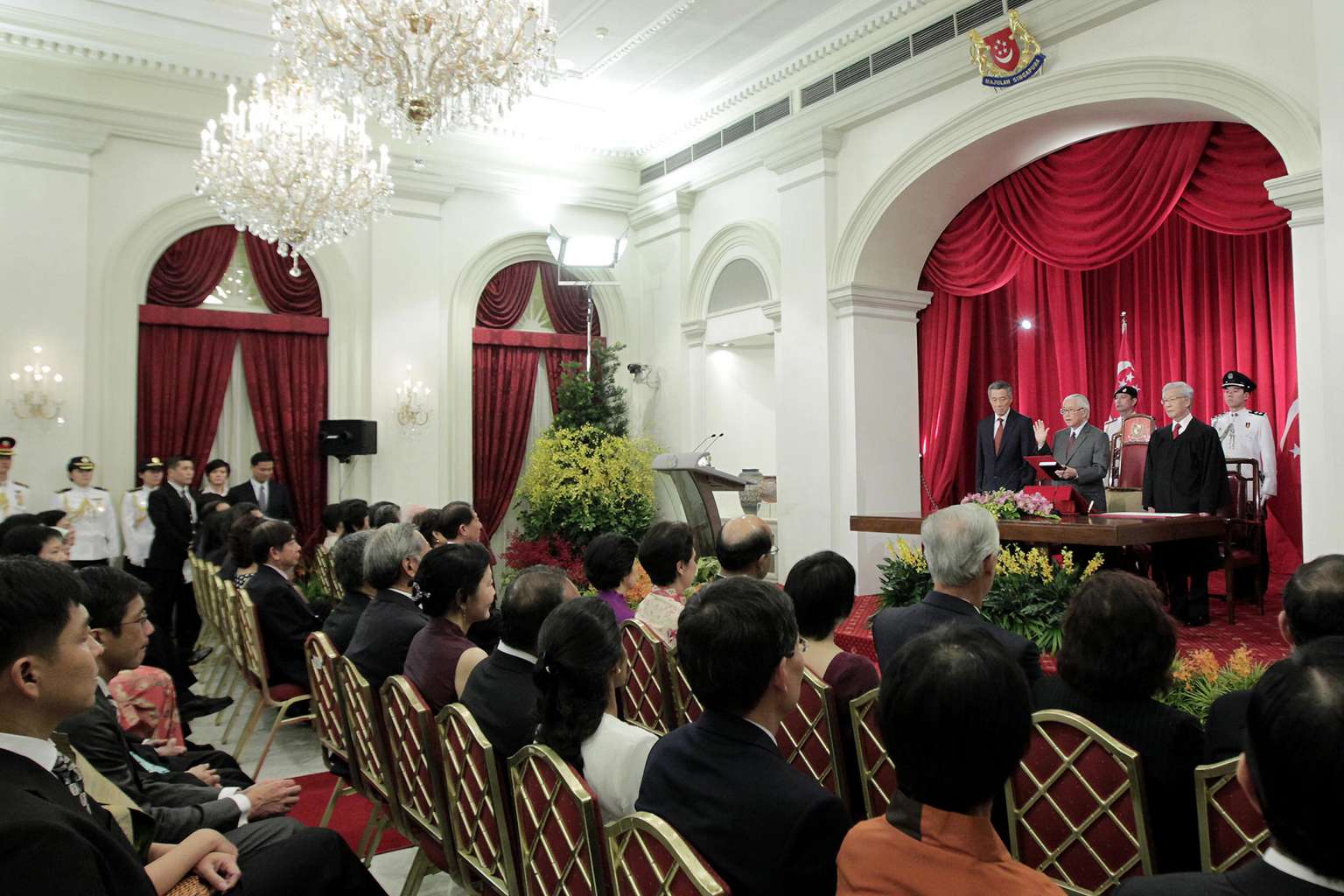Elected Presidency White Paper: Reserved race for minorities will 'strike right balance'
Sign up now: Get ST's newsletters delivered to your inbox

Dr Tony Tan (centre) taking his oath of office during the swearing-in ceremony as Singapore’s seventh president and third elected president in the State Room of the Istana on Sept 1, 2011.
PHOTO: ST FILE
Rachel Au-Yong
Follow topic:
SINGAPORE - The Constitutional Commission's proposal to guarantee a minority president from time to time strikes an "appropriate balance" between working towards the ideal of multiracialism and ensuring minorities are represented in the meantime, the Government said on Thursday (Sept 15).
The "hiatus-triggered" framework - in which an election is reserved for a particular race if no one from that group had been president for five continuous terms - also gels with Singapore's meritocratic ideals.
That is because the qualifying criteria for presidential candidates remain the same.
"This should negate any perceptions of him being a 'token' president," the Government said in its White Paper response to the panel's report.
The Government also said that, in accepting the recommendations, it agreed with the commission's reasons for ensuring multiracial representation in the presidency.
The panel had said that the "ultimate destination" was one where no safeguards are needed to ensure the representation of different ethnic groups. Singapore had not "arrived" at such a destination yet, it added.
Agreeing, the Government said multiracialism is "fundamental to Singapore's cohesion and survival".
It featured prominently in the first Parliament session in 1965, and formed the terms of reference for the first Constitutional Commission a year later, said the White Paper.
The ideal is also entrenched in other social policies, such as education, housing and politics. For example, the Group Representation Constituency (GRC) scheme was introduced in 1988 to ensure minorities are suitably represented in Parliament.
"This has encouraged all political parties to engage in multiracial rather than sectarian politics."
Noting that countries such as Switzerland and Canada also ensure multiracial representation for their heads of state post, the Government said the nation would "lose an important element of multiracialism" if particular minority groups are never represented in the office.
"Every Singaporean has to be able to identify with the President, and to know that a member of his community can and will become President from time to time."
The Government also cautioned against taking Singapore's multiracial and meritocratic society for granted, as the world is "seeing a trend of explicitly race-based politics which work up and exploit populist sentiments".
It added: "Decencies and sensibilities built up over the years can easily come undone in an age where populism and appeals to racial impulses are increasingly common."
The White Paper cited Britain's Brexit referendum in June, when debates on immigration policies were widely intertwined with racial arguments.
But at the same time, Singapore has yet to become a "post-racial" society, it said, pointing to a recent study that shows a significant number of people have a strong preference for presidents or prime ministers to be of their own race.
The proposed mechanism, however, is race-neutral as it guarantees the representation of all racial groups, the Government said.

It was "most unlikely" that the Chinese community would experience a five-term hiatus.
But the move to make sure there is minority representation is "significant at a symbolic level, as it underscores the importance of ensuring that all races are represented in the presidency", said the White Paper.

